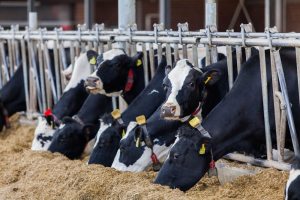Cow-to-cow transmission of Highly Pathogenic Avian Influenza (HPAI) has been confirmed by the U.S. Department of Agriculture (USDA). The virus has been confirmed in 26 herds so far, in eight states. Officials are continuing to work to answer several questions related to the ongoing outbreak. Western United Dairies CEO Anja Raudabaugh said the situation will continue evolving as more is understood about the situation.
“What is the origin of this virus? We strongly suspect it comes from migrating birds. But is it the feed? Is it the bird feces? Is it the birds bathing in the water?” Raudabaugh noted. “These are all questions that have not been answered yet. So, guidance and directives will definitely be changing every single week as the scientists know more.”
USDA’s Animal and Plant Health Inspection Service maintains an online resource including a list of detections along with biosecurity information. One thing that has been determined is the safety of food products. The U.S. Food and Drug Administration has stated that the “commercial milk supply is safe because of both the pasteurization process and that milk from sick cows is being diverted or destroyed.” USDA has also reiterated confidence in the safety of the U.S. meat supply.
With cow-to-cow transmission confirmed, animals that are showing symptoms of infection should be put in isolation. Producers are being encouraged to work with their veterinarians if cows are displaying signs of infection. While more is continuing to be learned about the situation, animals that have been infected are reportedly recovering.
“There’s not a high mortality associated with this virus,” said Raudabaugh. “But what we are seeing is that the animals that are in their fourth and fifth lactation are not often recovering to their full production capacity, and they are being culled, which is putting a lot of pressure on the young stock and the springer stock.”

Brian German
Ag News Director / AgNet West











